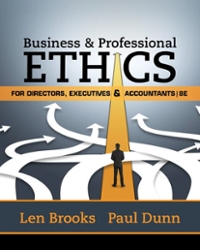On September 30, 2004, Merck voluntarily withdrew its rheumatoid arthritis drug (Vioxx) from the market due to
Question:
On September 30, 2004, Merck voluntarily withdrew its rheumatoid arthritis drug
(Vioxx) from the market due to severe adverse effects observed in many of its users (Exhibit 1). As a result, Merck’s share price fell \($11.48\) (27%) in one day, translating to a market-cap loss of \($25.6\) billion.
On August 19, 2005, the day a Texas jury found Merck liable for the death of a Vioxx user, the company’s market cap fell another \($5\) billion. During this trial, it became apparent that Merck had been profiting from Vioxx during the time it knew Vioxx had serious adverse effects.
Merck had obtained approval from the U.S. Food and Drug Administration (FDA)
for its drug Vioxx on May 20, 1999. By 2003, Vioxx was available in more than eighty countries, and sales had soared to over
\($2.5\) billion per year. Concurrently, increasing evidence (including data from Merck’s own studies) suggested that those taking Vioxx were at an increased risk of cardiac arrest and stroke. Yet the drug remained on the market until September 2004.
The impact of the withdrawal on Merck’s shareholders, management, patients, the FDA, and other stakeholders was dramatic. Public confidence and trust in Merck and other pharmaceutical companies were eroded. In 2005, Merck set aside
\($970\) million to deal with 9,600 lawsuits from more than 18,200 plaintiffs, though some estimated then that Vioxx could cost Merck more than \($20\) billion to \($25\) billion. By 2007, there were more than 26,600 lawsuits against Merck from nearly 60,000 plaintiffs. In November of that year, Merck agreed to pay \($4.85\) billion to families of just under 3,500 people who had died of heart attack or stroke and nearly 33,000 for lesser injuries. Nearly 25,000 of the 59,365 claims resulted in no payment.2 While the initial settlement was less than the amount some had predicted in 2007, litigation continued, and in 2012 a settlement of nearly \($37\) million was announced for Canadian individuals or their estates3 and in 2016 to investors who claimed that Merck’s practices had caused them lost income. By 2016, Merck had paid out more than \($8.5\) billion in lawsuits, including nearly \($1\) billion in government penalties.4,5 In 2004, the FDA followed the Vioxx case with interest and created a website page to provide information and updates at http://www.fda.gov/cder/drug/infopage/
COX2/default.htm. On September 30, 2004, when Merck voluntarily withdrew the product, the FDA issued the public health advisory that is reproduced below as Exhibit 1 (http://www.fda.gov/NewsEvents /Newsroom/PressAnnouncements/2004/ucm 108361.htm) and Vioxx Questions and Answers that can still be found at http://
www.fda.gov/drugs/drugsafety/postmarket drugsafetyinformationforpatientsandproviders
/ucm106290.htm.
Two journal references from the period are provided that outline medical issues associated with Vioxx as well as a sample of articles to 2016 that illustrate that Vioxx issues did not end with its withdrawal.
Questions:-
1. Utilizing the information provided and available on from Web sources, use the ethical decision-making techniques discussed in the chapter to form an opinion about whether Merck’s decisions regarding Vioxx were ethical. Show your analysis.
2. In order to protect the public more fully, what should the FDA do given the Vioxx lessons?
Step by Step Answer:

Business And Professional Ethics
ISBN: 9781337514460
8th Edition
Authors: Leonard J Brooks, Paul Dunn





